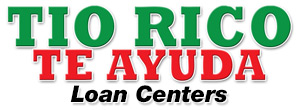
It’s that time of the year again, time to find out if a refund or a bill is coming your way. Taking a few easy steps ahead of time can make your tax filing a breeze!
Gather your paperwork
Nothing is worse than sitting down to file taxes and then realizing midway that you missing a form. Common items that are needed include:
- W-2 from employers
- 1099 (INT or MISC) from any interest income (like savings accounts) and self-employment or contractor income
- Car registration information – in some states, car registration fees based on the value of the vehicle are tax-deductible
- Medical expense information
- Childcare expense information
- Student loan interest statements
- College tuition expense statements
- Mortgage interest statement
- Charitable donation information
- Investment transaction statements – keep in mind that these might not be mailed by January 31st, some investment statements can legally go out later
- Business expense information
Decide how you want to file
Do you have a fairly simple return? Maybe you just worked one job and do not have any tax deductions to itemize? Then you can look into using a free service to file your return. However, hiring a professional tax service can save you a lot more money, especially if you have more than just a simple W-2. And the audit support offered by most CPAs is priceless.
Make next year’s filing easier
The key to a painless tax filing is preparation during the year. If you own a business, track business expenses as they occur (a simple excel spreadsheet should work nicely). Keep daycare receipt and medical receipts, and file the tax documents that come from banks and employers in a designated spot. Take a copy of your car registration when you renew the tags and keep that in the tax folder as well. The more prepared you are, the easier it is to self-file, and the faster it is to bring all of the needed information to a tax professional.
If you find yourself getting a large refund, or owing quite a bit of money to the government, consider adjusting your W-4 (the form that tells your employer how much to withhold from your checks) to make your deductions either smaller or larger. A tax refund feels good, but it is essentially money you let the government use for free. And owing money can put extra stress on the budget. If you need help or have other ideas about tax prep, contact us and get started today!

